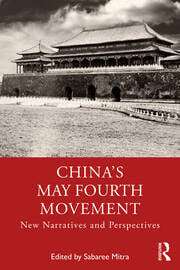
Nishit Kumar
in China’s May Fourth Movement: New Narratives and Perspectives (Sabaree Mitra, ed.), Routledge, 2023
Abstract: Huaju had realistic spoken dialogue instead of the poetic dialogues that were sung in the traditional dramatic form. The political situation in China at the end of the nineteenth century was largely responsible for the emergence of huaju. Some Chinese students staged the very first huaju in Tokyo in February 1907 to raise funds for flood victims and refugees in China. The May Fourth Movement began on 4 May 1919 with a large demonstration in Beijing over the Chinese government’s weak response to the Treaty of Versailles. It was an anti-imperialist, cultural, and political movement. The New Culture Movement was the first political incident that helped huaju in its thematic growth. In the beginning, huaju arrived as a direct import from foreign countries, which later started raising social issues. The New Culture Movement and its demand for use of vernacular language and its opposition to traditional culture helped in the consolidation of huaju as an art form.
About the author: Nishit Kumar was a HYI Chinese Studies in India Visiting Fellow from 2019-20.
